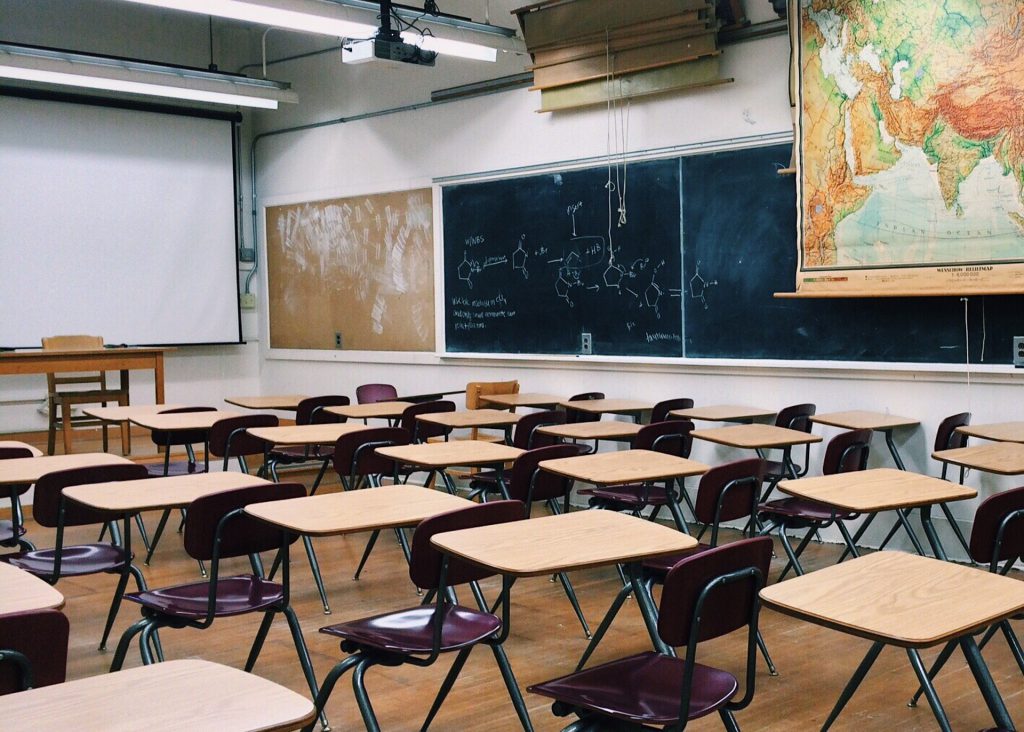School Board Races Getting More Partisan
Issues getting nationalized. Waukesha leads the way in Wisconsin.
There was a time when school board elections were sleepy affairs. All candidates agreed not to spend more than a few hundred dollars campaigning. The way to win these elections was to get as many yard signs out as possible and knock on a lot of doors — but don’t say much about controversial issues, just that you care about kids.
Now tens of thousands of dollars are being spent, consultants are being hired, and opposition research is being conducted principally by rightwing organizations, often by the Republican party.
Nonpartisan incumbents, who thought they could continue to run traditional campaigns, are being forced to engage on a new election battlefield raising larger donations and accepting support, sometimes grudgingly, from outside political action committees including from traditional political parties.
School board races become partisan
Politicization of school board races is a growing phenomenon nationwide. Several states now allow school board candidates to place their party affiliations on the ballot even if the race is considered nonpartisan. The effort on the right is to elect strong conservatives supporting political positions which have little to do with education. Conservatives say diversity training and critical race theory (CRT) are undermining the real purpose of education, namely the teaching of reading and math.
Heather DuBois Bourenane is executive director of the nonpartisan Wisconsin Public Education Network. She has watched how conservatives have been chipping away at public education in a very partisan way. Pinning the party label on candidates gives the party leadership leverage. “This is a way of Republicans planting board members and holding them to policy positions which might be aligned with their political positions but not aligned with the needs of kids,” she says.
“Parties have always been involved in recruiting candidates,” says Michael Ford, a professor at UW-Oshkosh who works with school boards to resolve conflicts and develop board management. There have long been partisan actors running training sessions for newcomers, encouraging them to run for nonpartisan local offices. But the willingness to place party affiliation in literature for nonpartisan elections is something new, he says, adding, “It is a hugely negative development.”
Ford wrote an article for Governing last September under the headline “Why School Board Elections Should Stay Nonpartisan.” Last October, Ford told the Examiner that he saw school boards becoming “hyper-nationalized” with citizens showing up to question the very legitimacy of the boards’ right to exist or make policy. “That is new; that is anti-democratic,” he said. He stated in an interview for this article that his viewpoints remain the same if not further underscored.
Ford says liberal candidates have relied more on labor unions for help getting elected, while the Democratic party stayed in the background.
Historically, teachers’ unions and management have squared off mostly over wages and labor issues. What happens educationally was left up to the school boards. But the conflicts began to broaden over the takeover of Milwaukee schools by the state and the fostering of charter and voucher schools.
Chheda says that Democrats have fallen behind Republicans in supporting school board candidates. Democrats use ActBlue to raise money for Democratic candidates, but not for nonpartisan races. Instead of funneling money directly to nonpartisan candidates, they rely on independent expenditures not coming from the party itself and maintaining no contact with the candidates directly.
Waukesha County
Nowhere has the politicization been greater in Wisconsin than in Waukesha County. The Waukesha Republican Party’s WISRED has a Facebook page filled with candidates it supports, half of them in what are supposed to be nonpartisan school board races.
Matthew Mareno, chair of the Waukesha County Democratic Party, believes Waukesha is ground zero in Wisconsin because parts of the county are turning blue. He points to Wauwatosa, once a strong Republican fortress, now a Democratic stronghold.
In order to counteract the shift, Republicans look for wedge issues in school board races, using them to develop more Republican elected officials. The controversies over face mask wearing and in-person learning gave them some traction this past year, but as the pandemic eases social issues might not drive voters to the polls.
In the Elmbrook race last year, candidate James Gunsalus attacked the school system for paying too much attention to diversity, equity and inclusion rather than basic education skills. But he may have overstepped when he called to “Return ‘American Values’ to our classrooms” against incumbent Mushir Hassan, who is also a member of the executive committee of the Islamic Society of Milwaukee.
Mareno said that they “ran some of the most disgusting, racist, Islamophobic ads I have ever seen…” Yet WISRED supported Gunsalus. Hassan was reelected.
Waukesha School District
The Examiner has been following the conflicts over school signs supporting Black Lives Matter and safe zones for LGBTQ students. The lack of support for minority students in the district is brought up by the public at nearly every school board meeting. The conflict brought out eight candidates for just three positions in the spring primary.
Three candidates, Marquell Moorer, Karrie Kozlowski and Mark Borowski, are supported by WISRED and are running as a combined slate. Historically, candidates run independent of one another. These candidates made it through the primary with three more moderate candidates: incumbents Greg Deets and Bill Baumgart and newcomer Sarah Harrison.
Deets claims that the WISRED candidates agreed to be vetted by the Republican Party of Waukesha County. “I thought this was supposed to be a nonpartisan LOCAL school board election,” Deets writes on the Facebook page.
He states that he will not seek support, funding or endorsements from any outside group and will spend no more than $2,000 on his campaign. Originally, Deets and the other two moderate candidates were running traditional, independent campaigns. Now they are running as a united slate handing out literature with all three names and photographs and the message they are “protecting” Waukesha schools.
If the moderate candidates hold to a traditional, low budget campaign, they could be overwhelmed by the money and resources coming from the right.
Chheda isn’t so sure it matters. “Most people, by and large, do not want their school boards or local government politicized. There are races in which it makes sense for the political parties to lean in, but in a state like Wisconsin, in most places, and in most races, being the nonpartisan candidate who can attract support from both sides is the better way to go.”
So far in Waukesha, one political action committee is supporting the moderate candidates. Waukesha United for Kids’ Carl Lock admits that his PAC has limited resources and most volunteers are novices in campaign activism. Mareno states that the Waukesha Democratic party will become more involved but will not say to what degree. The same goes for the teachers’ union, the Wisconsin Education Association Council (WEAC), which will not state to what degree it will become involved.
Conservatives may not win without COVID
“It’s a tough year to be an incumbent,” says DuBois Bourenane. “People on both sides of the political spectrum are sick of the status quo.” Which fresh faces voters will gravitate to is an open question.
A November article for The Atlantic by Adam Harris, “School Aren’t the Republicans’ Ticket to Victory” questions whether this new wave of partisanship will have a major impact. The November 2021election was “the first time Americans were able to see whether the loudest voices in the room would also be the loudest voices at the ballot box – they were not…” he concludes, and highlights several races nationally including the recall election in Wisconsin’s Mequon-Thiensville district where the effort to recall several board members failed nearly 2-1.
Still, the remaining conservative Oconomowoc school board members were able to appoint more conservatives to the vacant seats. Even after the coming April election, the school board will be far more conservative than it was two years ago. Harris does not address that reality.
In Beloit, billionaire Diane Hendricks has supported right wing educational causes including starting a charter school outside of the control of the local school board. Regardless of what the Rock County Republican party might do, Hendricks’ high profile backing of conservative Beloit school board candidates sends a signal to other Republicans about whom they should support. DuBois Bourenane sees similarities in how candidates are running in Beloit with other conservative school board candidates in other districts. The conservative candidates are running as a slate — something rarely seen in nonpartisan elections.
Still, when the votes came in for the February primary, the top vote getter was school board president Megan Miller who proudly announced on her Facebook page before the primary that one of her greatest achievements was the “Equity Audit to increase our culturally responsive curriculum.” Several conservatives did finish high enough to be considered in the general election.
Ford points to what happened last month in the Oshkosh school board primary. The two top vote getters were incumbents. Four challengers followed, all of whom criticized mask wearing and virtual learning. The two candidates that made opposition to critical race theory and diversity a major part of their message finished far down the ballot and will not be there for the April election.
Ford states that wearing a mask or virtual education is concrete and tangible, while critical race theory is “really amorphous.” It is hard to determine just what it is. As masks and virtual learning fade, switching the attack to CRT may not be a winning formula. Says Ford, “I don’t think the numbers are there.”
Ford remembers the fight over Common Core standards during the Obama administration when conservatives opposed federal curriculum standards. Common Core gained little traction in implementation, but it was not a selling point for Republicans winning elections.
“I’ve seen this movie before,” says Ford “The efforts of political parties to get involved [in school board elections] does not seem to be sustainable… As we get through this COVID disruption, do we see a return to what school board races are really about?”
Ford concedes that traditional school board members have so much territory to defend that it is inevitable that ideological conservatives will make some gains in the upcoming school board elections. It may take several years for more moderate school board members to return to power.
Can the far right maintain control of school boards? Concludes Ford, “If I was a betting man, I would say this will not last.”
The gloves are off in school board elections was originally published by the Wisconsin Examiner.
If you think stories like this are important, become a member of Urban Milwaukee and help support real, independent journalism. Plus you get some cool added benefits.
K-12 Education
-
The Unknown MPS Office
 Jun 26th, 2024 by Terry Falk
Jun 26th, 2024 by Terry Falk
-
Who Is Eduardo Galvan?
 Jun 19th, 2024 by Terry Falk
Jun 19th, 2024 by Terry Falk
-
How Will School Board Hire New Superintendent?
 Jun 10th, 2024 by Terry Falk
Jun 10th, 2024 by Terry Falk























If you want your children ignorant, sick, and racist then elect the rightwing candidate
Its good that parents and parent groups are finally getting involved in their childrens education and demanding better from our declining schools. Also creating more school vouchers for our poor children of color so they can attend the same elite private schools that rich white people do is the civil rights movement of our time!
Seems like a good idea for more parents to get involved with their children’s education. Also it looks like more vouchers will help in the equity of educating children of color in the same elite private schools that rich white kids attend.